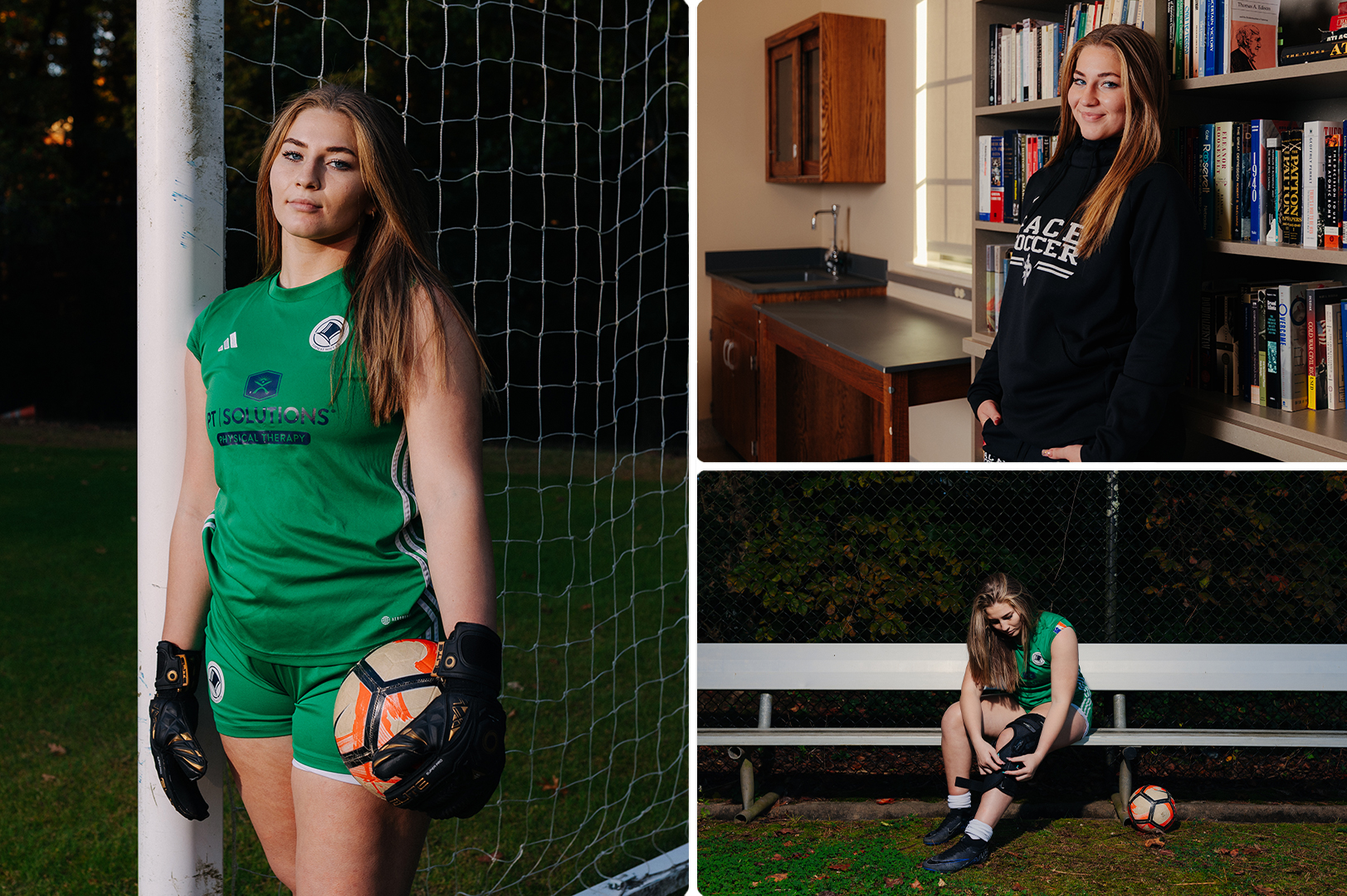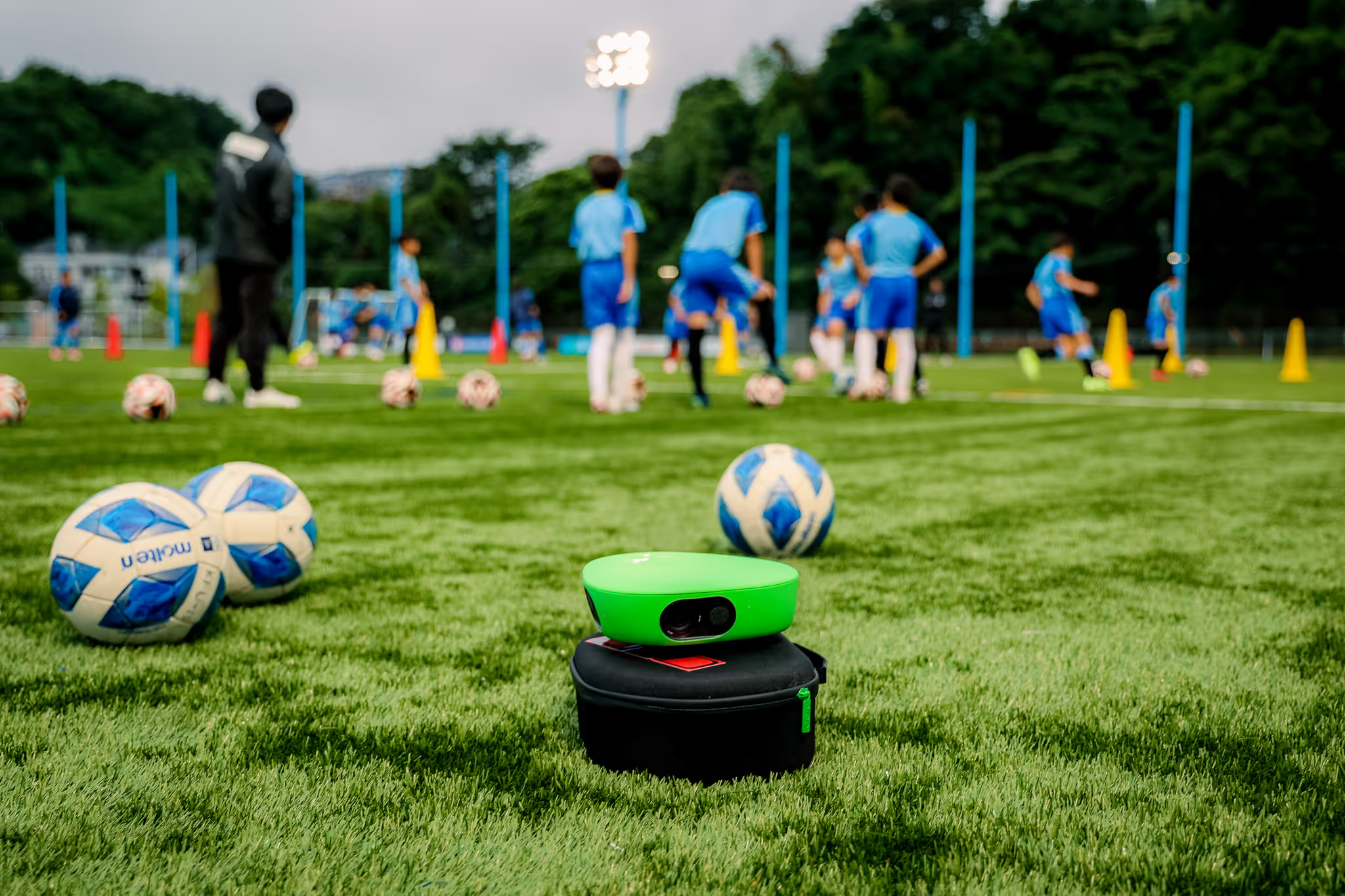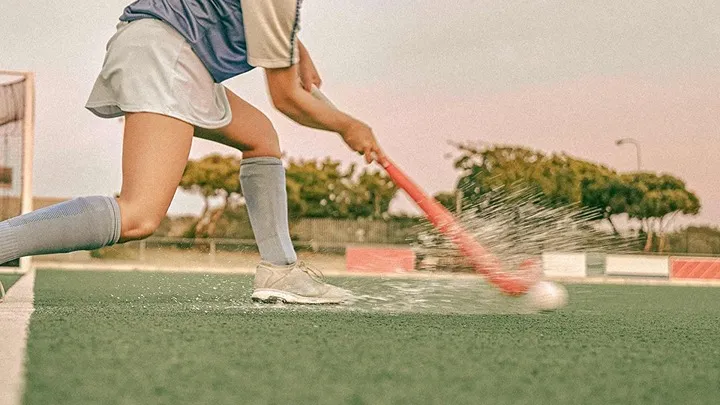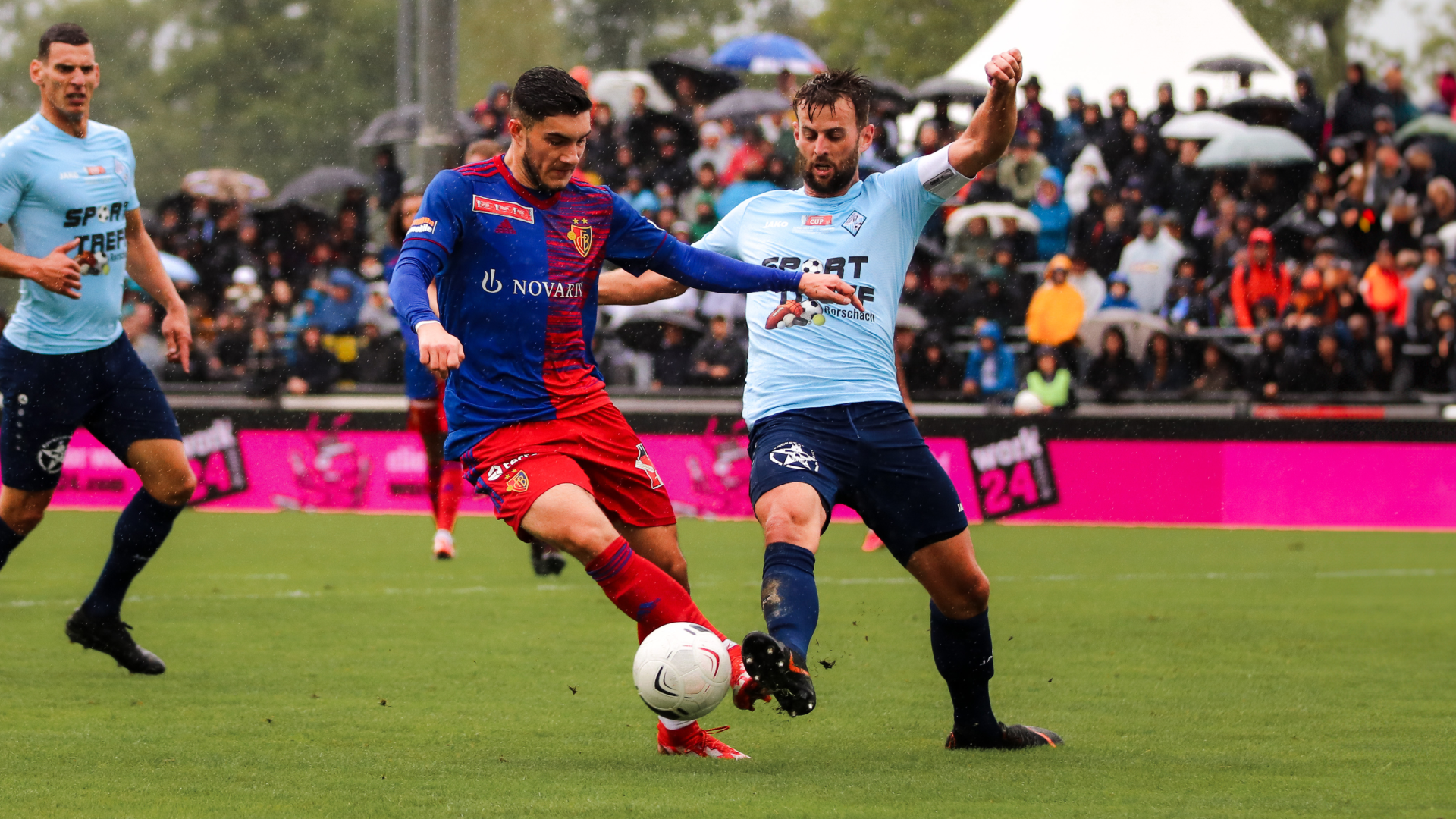The Comeback Kid: Lexi Goodman on ACL Recovery, Mental Toughness, and Playing with Happiness
Frederik Hvillum

When NASA Tophat goalkeeper Lexi Goodman suffered a devastating knee injury during what should have been an easy high school game, she faced the toughest challenge of her young career. Six months into recovery, the All-American keeper shares how video technology, positive mindset, and sheer determination are fueling her return to the pitch.
At just 17 years old, Lexi Goodman has already experienced the highest highs and lowest lows of competitive football. The NASA Tophat goalkeeper was instrumental in her team's victory at the Girls Academy Champions Cup Finals, a tournament that showcased some of America's brightest young talent across 15 fields. But just months after that triumph, her senior year took an unexpected turn.
"I was playing a high school game, and it was supposed to be an extremely easy game," Goodman recalls. The team arrived late, limiting warm-up time to just 10-20 minutes before she took the pitch as a striker. "Someone just tripped me."
The diagnosis was severe: an ACL tear, a complex meniscus tear, a partial tear in the arcuate ligament and popliteofibular ligament, a fibular collateral ligament sprain, and an impaction fracture of the lateral femoral condyle with overlying chondromalacia with deep fissuring.
She had surgery to repair her ACL with her quad tendon and to suture her meniscus back together, leaving her on crutches for six weeks, along with a rehabilitation timeline of 9-12 months. For a goalkeeper who describes herself as playing with "happiness and beast mode," the injury represented more than just physical recovery.
Germany, Goalkeeping, and Growing Up
Goodman's football journey began unusually early, even by American standards. Born into a military family, she spent her early years in Germany.
"I was actually more fluent in German than my parents, so I was translating for them in restaurants," she explains. During those formative years, she traveled extensively across Europe while developing her love for football.
By age five, as soon as goalkeeping became an option, Goodman knew her position. "I've always been in soccer, and goalkeeping was my thing," she says simply, though she admits with a laugh that part of the appeal was "because I didn't have to run as much as the rest of the players."
Her competitive edge sharpened at Savannah United, where she faced constant pressure and received lots of shots on goal. "That's when I started being really competitive in goalkeeping. I have a lot of videos from there that I was really excited about."
A major milestone came in 2022 when she helped her Olympic Development Program (ODP) team win the regional championship. The ODP, run by US Youth Soccer, identifies and develops the nation's top players through a competitive selection process.
The Tophat Philosophy: Goalkeepers as the 11th Player
When Goodman joined NASA Tophat, she entered an environment with exceptionally high standards. The club, founded in 1982 and committed to long-term player development, has become one of Atlanta's premier programs for girls' football.
Head coach Troy Garner's philosophy transformed how Goodman understood her position. "Coach Troy always has us practice together, especially in training. He says that goalkeepers are supposed to be the 11th player on the field, they're just allowed to use their hands, basically."

This approach initially challenged her. "I was not that good a few years ago. It was really bad," she admits about her footwork. But the coaching staff saw potential beyond her current abilities.
"Kyle was like, 'I see Lexi, she has the aggression, and she has the mindset, but there's one thing we can teach, and that's footwork. So we know this is a great fit for Lexi.'"
The development of her distribution skills proved transformative. "I really use passing the ball to be the 11th player. Especially when my teammates really have no option to move forward and there's a defender right on their back, I want them to feel confident in playing the ball to me." And she also believes this builds a stronger trust and bond between her and her teammates.
Playing with Happiness
What sets Goodman apart isn't just technical ability. Her mental approach to the position reveals wisdom beyond her years.
"When you just have confidence stuck in your brain, it kind of excludes you from everybody else and leads you to being more cocky," she explains. "But when you're playing with happiness, you're radiating happy energy, which for me with my teammates, is when they’re succeeding as well. You just have to keep remembering where your happiest moment on the field was."
This philosophy emerged from rejecting conventional goalkeeper psychology. "I remember my family members saying, 'Just act like you're really mad at them [the opponents], or like they stole your boyfriend or something.' And I was like, 'I don't play with anger, I play my best with happiness.'"
Her approach was captured memorably during NASA Tophat's Champions Cup campaign, documented in Veo's tournament footage. After making a crucial penalty save in the semifinals, rather than the typical aggressive celebration, Goodman smiled.
"This is my happy place. It’s my game. I don't think about them. My opponents change every game, but my mindset is going to stay consistent because I do this on a daily."
Video Technology as a Development Tool
For Goodman, video analysis through Veo has become integral to her development, offering perspectives impossible to achieve in real-time.
"Sometimes I'm like, 'I was so good during this practice or during this game,' but then I watch it and I'm like, 'I was actually kind of slow on that,' or 'That wasn't the best decision, even though I thought I made a good decision at the time.'"
The technology provides detailed feedback on positioning and decision-making. "I'm able to see my face and what I'm looking at on the field to see how well I scanned. I was also able to see how far their defender was from them, and whether I could have played another girl who had more time."
She also catches coaching feedback she missed during matches. "I can hear my coaches. So that's also a really funny part. I can hear any feedback that I didn't hear on the field."
Beyond individual development, video creates bonding opportunities. "It's really exciting, and it makes you feel more connected with everybody. You can kind of bond with the rest of your teammates," she notes. Team video sessions at her high school particularly stand out: "The entire team would laugh. It was a special moment."
The footage from her Champions Cup performances has also served practical purposes. "I even used it in my highlight video. It was so good. There were a lot of coaches who were really excited about the video, and they loved it."
Academic Excellence and the Recruiting Journey
Goodman's achievements extend beyond the pitch. As an Academic All-American from Pace Academy, a prestigious private school in Buckhead, she maintains a rigorous academic schedule alongside elite-level athletics.
"It's one of the most expensive private schools in Atlanta, teaching pre-K to 12th grade. All its regular courses are college prep, and there are a lot of AP courses as well," she explains.
The accolade recognizes her well-rounded excellence, though the injury has complicated her recruiting timeline. "A lot of coaches do respect all the awards that I've received. But it's just been a slower process because they all have to see where I'm at after my ACL injury."
She attended ID camps at Brown, Princeton, and Georgia State before her surgery, performing well among five or six other goalkeepers at each event. The setback hasn't diminished her determination.
The Mental Battle of Recovery
Six months into rehabilitation, Goodman confronts not just physical challenges but psychological ones. The injury occurred during her crucial senior year, when college recruitment typically intensifies.
"Especially with my ACL injury, it's been way harder to stay positive," she admits. Yet her response to doubt reveals her competitive spirit.
When someone insisted she wouldn't return before 12 months, Goodman pushed back: "Well, I'm going to really focus on it, and I'm going to push myself. She really was pushing it on me that I'm not going to get back until a year. And I didn't back down either. I was like, 'Well, we can agree to disagree, but I'm coming back as fast and with the lowest risk of reinjury as possible .'"
Her surgeon projected 9 to 12 months, but Goodman targets 10 months. "I've been pretty good with my PT, and everything's going according to plan," she reports.
Surprisingly, the injury has given her a new appreciation for running. "I swear I've never enjoyed running until now. When I was younger and chose goalkeeping, one of the reasons was that I didn't have to run as much as the rest of the players. But ever since my ACL, I've been so excited to run. It's become an outlet."
“You have to know that this is your ball”
Goodman's approach to mistakes and setbacks centers on effort and learning. "Whenever you give your 100%, you should never regret anything. If you did make a mistake, just rewatch it and learn from it, and try to practice it later or make it something you read five times before every game or practice like, ‘scream goalkeeper, not mine.’"
This mindset didn't emerge overnight. During her early Tophat days, she struggled with self-doubt. "I got into my head a little bit. I was a little more insecure about whether I was doing something right, like 'I don't want to mess up something.'"
The breakthrough came from embracing positivity. "No matter what, whenever you step on the field or in real life, just always lead with positivity. Even if there's a negative part about it, excuses or something, you probably can’t change your predicament by expressing your negative opinions; you're just making it harder for everyone else and making it less likely for them to succeed. So don't think about it as that, because there's always a reason you can think of that you're doing that, and it's only making you stronger, even if it's just mentally or physically. For example, if your team has to run because someone falsely accused y'all of doing something, just do the running without complaints. Yelling won’t get you out of the running, and hearing ‘only 10 more! We got this!’ will make the next run less exhausting."

When asked what distinguishes elite goalkeepers, Goodman identifies two key factors: comfortability and intensity.
"I would say how natural it feels to them and their beast mode. I've seen a few girls who feel uncomfortable when they dive for the ball or even catch the ball. It looks uncomfortable to them."
The second element relates to mentality. "Beast mode, I would say, is just… You have to know that this is your ball, and no one's going to stop you from getting it. And that's really what kind of sets it apart."
Her aggressive style, which includes Peter Schmeichel-inspired warm-ups and fearless challenges outside the box, embodies this philosophy. "I've just always been aggressive when it comes to coming out of my box to get a ball."
Looking Forward
As Goodman progresses through rehabilitation, her future remains bright. Before the injury, she had considered pursuing the national team pathway. Now, she's also exploring other interests, including medicine.
"For the past few years, I've always kind of jumped at being a surgeon," she reveals, though there's no reason both paths can't coexist.
Four months remain until Goodman's projected return to the pitch. When she does come back, expect the same aggressive, joyful, technically refined goalkeeper who helped NASA Tophat reach the pinnacle of youth football in America. Just with an even deeper appreciation for every moment between the posts.
"This is my job, this is my everyday thing," she says. For Lexi Goodman, that's exactly where she belongs.

.jpg)


